Fruits can be a good source of protein. Though they provide less protein than vegetables, beans, nuts, and other high-protein foods.
Most people have to match a current daily value (DV) of protein which is 50 grams per day. 1 cup of fruit provides 1-10% of the DV for protein. High protein foods are readily available in the market. Guavas, avocados, kiwi fruit, blackberries, and oranges contain protein.
The list below is sorted by serving per cup because it is easier for a layman to compare which fruit should they pick to satiate their protein needs.
1. Guavas
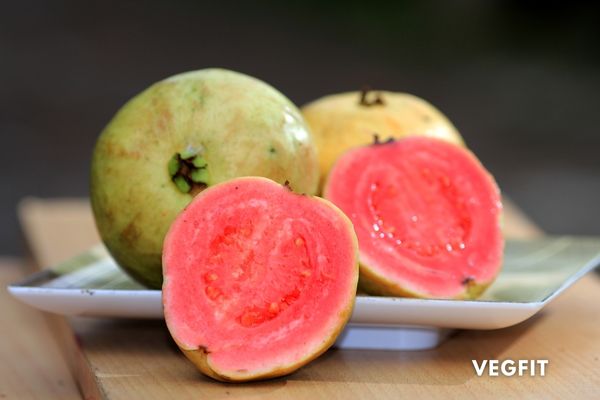
Guavas are tropical fruits. Oval in shape, light green or yellowish in color, containing edible seeds— Guavas are rich in antioxidants, fiber, potassium, and vitamin C. It is called the versatile fruit. In fact, the leaves of Guava get used as herbal tea.
Protein Content
- Protein Per Cup: 4.2 g ( 8% DV)
- Protein per 100 grams: 2.6 g (5% DV)
- Protein per 200 Calories: 7.5g ( 15% DV)
Nutritional Profile
- Calories: 112 cal
- Total fat: 1.6 g
- Cholesterol: 0mg
- Sodium: 3.3 mg
- Total carbohydrates: 24 g
2. Blackberries
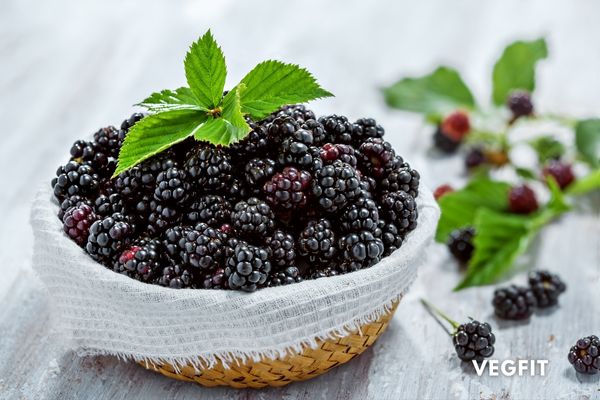
Blackberries are great sources of Vitamin C, K, manganese, and fiber. It promotes brain health. Blackberries go great with smoothies, greek parfait, salads, etc.
Protein Content
- Per Cup Protein: 2g (4% DV)
- Per 100g Protein: 1.4g(3%DV)
- Per 200 Calories: 6.5g (13% DV)

Nutritional Profile
- Calories: 62 (3% DV)
- Protein: 2g (4% DV)
- Fat: 0.7g (1% DV)
- Carbs: 14g (5% DV)
- Fiber: 7.6g (27% DV)
- Sugar: 7g (14% DV)
- Sodium: 1.4mg (0% DV)
- Calcium: 42mg (3% DV
- per Cup Protein: 2g (4% DV)
- per 100g Protein: 1.4g(3% DV)
- per 200 Calories: 6.5g (13% DV)
3. Orange
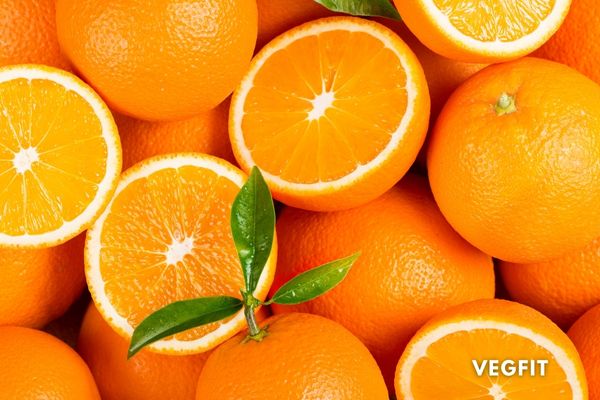
Oranges are round citrus fruits. A nutritional powerhouse, oranges are grown all over the world in warm climates. It is a great fruit to promote skin health. One of the key benefits of consuming oranges is that it prevents macular degeneration, and thereby prevents vision loss.
Protein Content
- Per Cup Protein: 1.7g (3% DV)
- Per 100g Protein: 0.9g (2%DV)
- Per 200 Calories: 4g (8% DV)
Nutritional Profile
- Calories: 85
- Protein: 1.7g
- Fat: 0.2g
- Carbs: 21g
- Fiber: 4.3g
- Sugar: 17g
- Sodium: 0mg
- Calcium: 72mg
4. Apricot
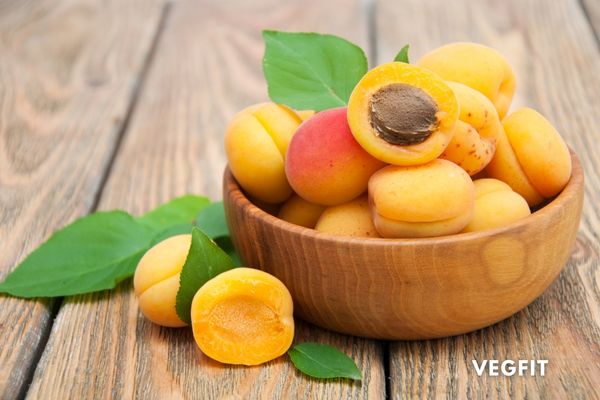
Apricots offer a lot of dietary fibers for better digestion. This fruit— a great source of fiber has half amount of soluble fiber and half the amount of insoluble fiber. Soluble fibers help your digestive tract retain water and also helps good bacterias to thrive.
Protein Content
- Per Cup Protein: 2.2g (4% DV)
- Per 100g Protein: 1.4g ( 3% DV)
- Per 200 Calories: 5.8g (12% DV)
Nutritional Profile
- Calories: 74 (4% DV)
- Protein: 2.2g (4% DV)
- Fat: 0.6g (1% DV)
- Carbs: 17g (6% DV)
- Fiber: 3.1g (11% DV)
- Sugar: 14g (29% DV)
- Sodium: 1.6mg (0% DV)
- Calcium: 20mg (2% DV)
5. Kiwi fruit
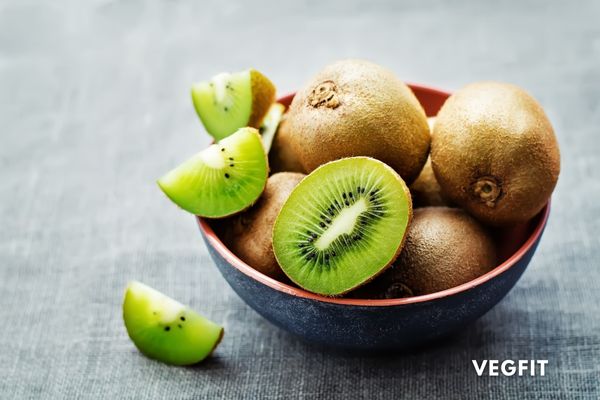
Kiwi is camel-colored fruit with fibrous skin. The kiwi skin is edible and tart. Kiwis are also green colored, with black seeds and a fleshy, and juicy interior. They are a popular addition to a healthy breakfast or lunch. Kiwis are high in vitamin C and antioxidants.
Protein Content
- Per Cup Protein: 2.1g (4% DV)
- Per 100g Protein: 1.1g(2%DV)
- Per 200 Calories: 3.7g (7% DV)
Nutritional Profile
- Calories: 110 (5% DV)
- Protein: 2.1g (4% DV)
- Fat: 0.9g (1% DV)
- Carbs: 26g (9% DV)
- Fiber: 5.4g (19% DV)
- Sugar: 16g (32% DV)
- Sodium: 5.4mg (0% DV)
- Calcium: 61mg (6% DV)
6. Banana
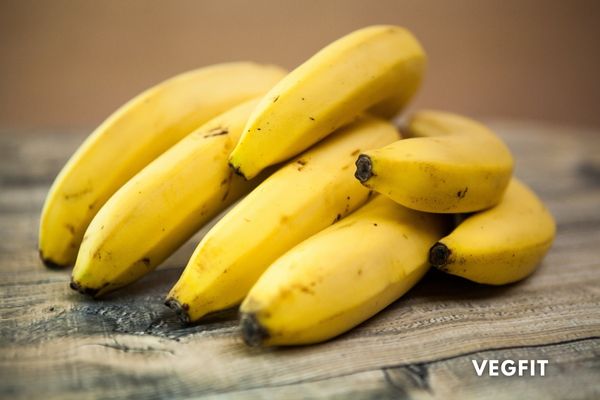
Bananas are incredibly healthy, convenient, delicious and a storehouse of energy. It is an excellent choice for those who want to stay healthy. Bananas help in weight loss, digestion, and heart health. The fruit is full of antioxidants.
Protein Content
- Per Cup Sliced 1.6g (3% DV)
- Per 100 gram: 1.1g (2% DV)
- Per 200 Calories2.4g (5% DV)
Nutritional Profile
- Calories: 134 (7% DV)
- Protein: 1.6g (3% DV)
- Fat: 0.5g (1% DV)
- Carbs: 34g (11% DV)
- Fiber: 3.9g (14% DV)
- Sugar: 18g (37% DV)
- Sodium: 1.5mg (0% DV)
- Calcium: 7.5mg (1% DV)
7. Raspberries
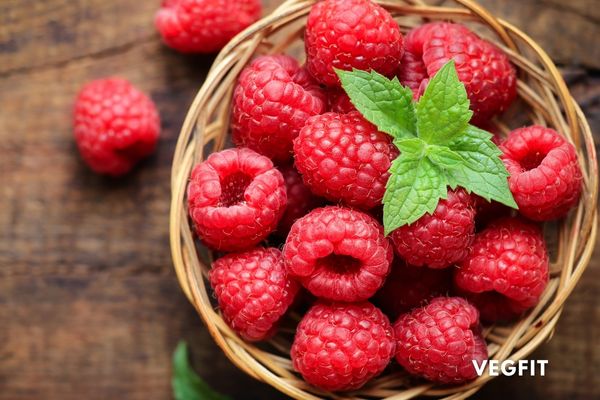
Raspberries are loaded with potassium. It is essential in the functioning of the heart. The same helps in lowering blood pressure. The omega-3 fatty acids in raspberries help to prevent stroke, and heart disease. It also contains a lot of manganese, necessary to make healthy bones. It helps regulate skin health and blood pressure.
Protein Content
- Per Cup Protein: 1.5g (3% DV)
- Per 100g Protein: 1.2g (2% DV)
- Per 200 Calories: 4.6g (9% DV)
Nutritional Profile
- Calories: 64 (3% DV)
- Protein: 1.5g(3% DV)
- Fat: 0.8g (1% DV)
- Carbs: 15g (5% DV)
- Fiber: 8g (29% DV)
- Sugar: 5.4g (11% DV)
- Sodium: 1.2mg (0% DV)
- Calcium: 31mg (2% DV)
8. Peaches
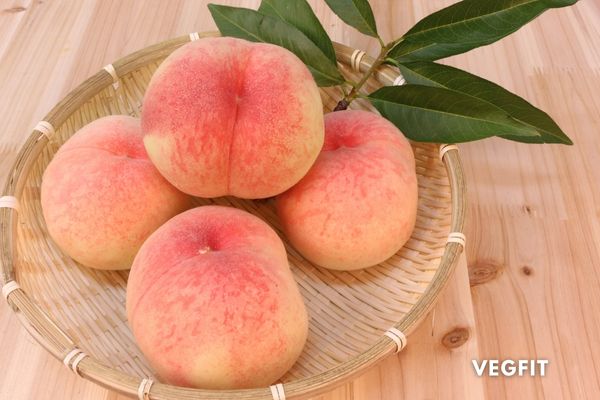
Peaches are a delicacy in summer. They are soft, fleshy, juicy, and full of vitamins, minerals, and antioxidants. The peaches are great for maintaining a healthy heart, help to keep the cholesterol level on the lower side, and of course, aid in controlling high blood pressure.
Protein Content
- Per Cup Protein: 1.4g (3% DV)
- Per 100g Protein: 0.9g (2% DV)
- Per 200 Calories: 4.7g (9% DV)
Nutritional Profile
- Calories: 60 (3% DV)
- Protein: 1.4g (3% DV)
- Fat: 0.4g (0% DV)
- Carbs: 15g (5% DV)
- Fiber: 2.3g (8% DV)
- Sugar: 13g (26% DV)
- Sodium: 0mg (0% DV)
- Calcium: 9.2mg (1% DV)
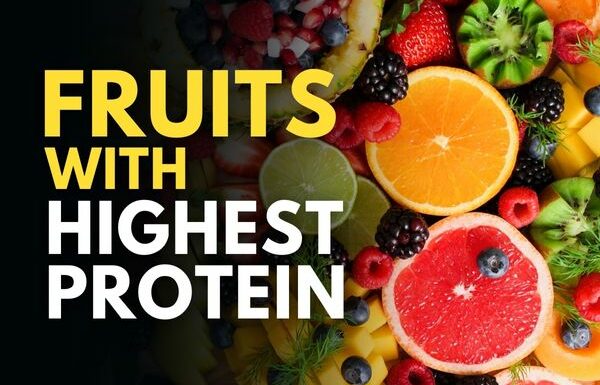




Leave a Reply